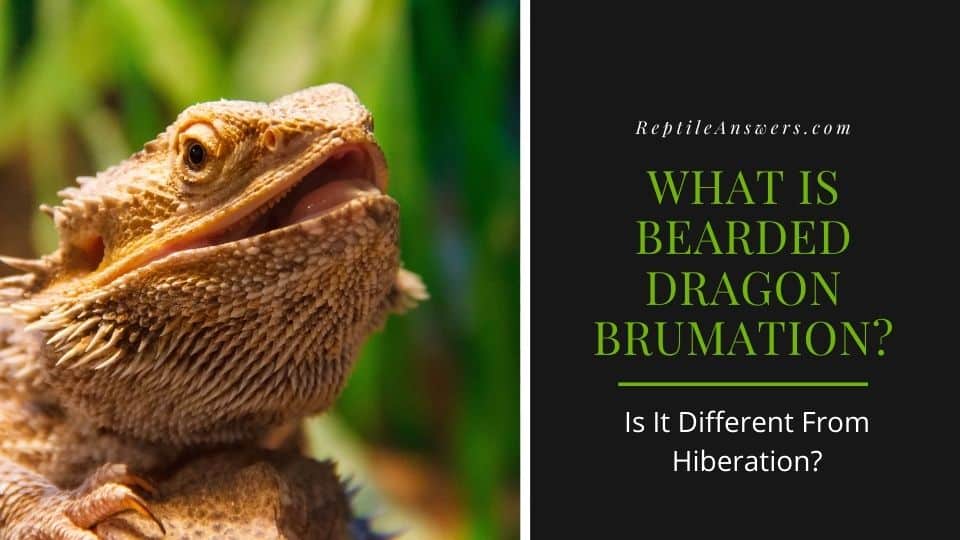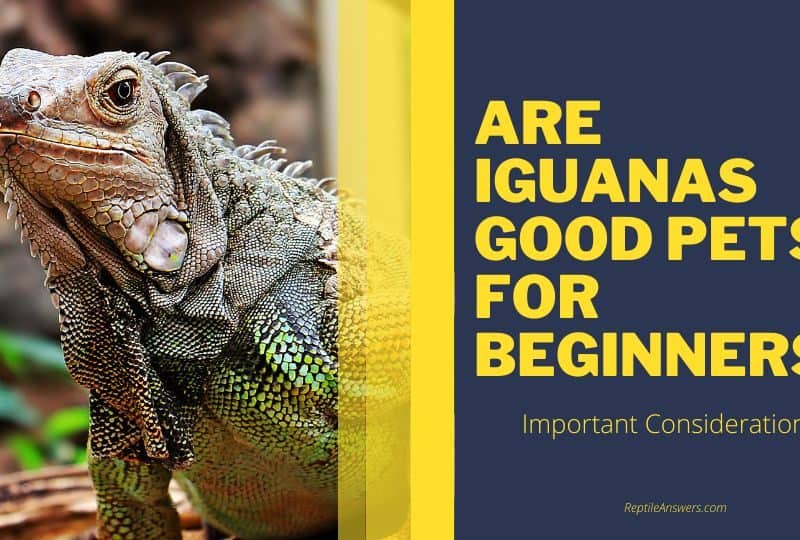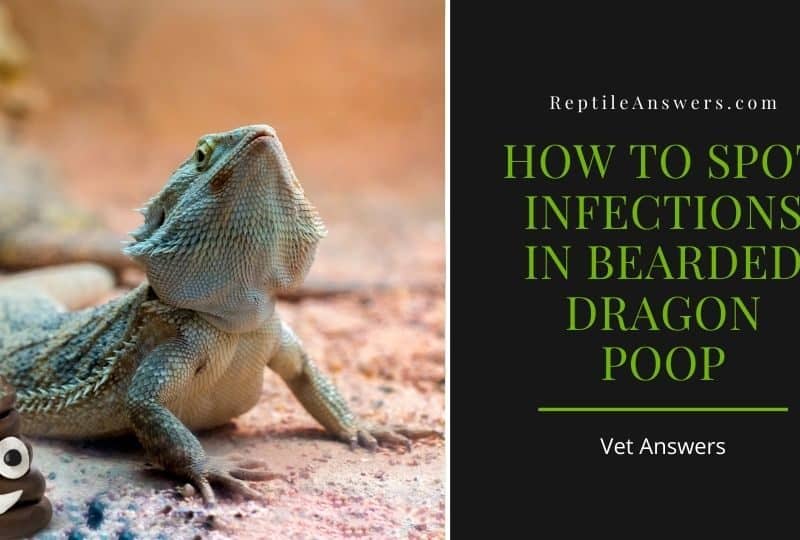If you are thinking about buying a bearded dragon, you might be wondering: what is brumation? How long does brumation last? Do baby bearded dragons brumate? Let’s take a look! Hopefully, you’ll find this information helpful and understand the different phases of bearded dragon hibernation.

What is Brumation?
Bearded dragons often enter a state of brumation when the temperature drops below a certain threshold. This phase is often referred to as hibernation. Various factors, including environmental changes, can induce it.
For example, the temperature of a cave may be colder than the room temperature in a house with windows. A bearded dragon’s habitat should be insulated against cold air and temperature changes, as well as being kept out of the direct path of heaters and air conditioning units. In addition, if a bearded dragon goes into brumation during the wrong season, it is likely to be sick or injured.
While bearded dragons poop during brumation, the frequency of poop and the amount of food they eat during this period will be lower than during hibernation.
Regardless, this period of reduced activity is essential for your beardie’s overall health. In addition, it is vital to monitor the condition of your beardie’s intestines while he’s brumating to prevent the development of parasites.

When Do Bearded Dragons Brumate?
Brumation is a period of low metabolic activity, making your beardie appear unhealthy. Knowing when your beardie will brumate is important to ensure that it is not starving.
You can determine brumation by not overfeeding your beardie during this time. Make sure that you monitor your beardie’s weight throughout the autumn to check for any changes.
Brumation in bearded dragons is common in adult dragons, but it is not a normal process for a baby bearded dragon. Bearded dragons have been brumating for millions of years, and captive breeding hasn’t changed their behavior. When a beardie is ready to brumate, he will actively resist food and make only minimal effort to eat. You can also observe the classic signs of illness and nutritional deficiencies.
Despite this common misconception, beardie dragons brumate during the coldest months. However, in captivity, this behavior isn’t necessary, and it will last a few weeks or even months. It depends on the biological clock of the beardie. If you’re concerned about your beardie’s health, you can take measures to help them cope with the changes.
How Long Do Bearded Dragons Brumate?
When a bearded dragon reaches brumation, it is essential to keep a few things in mind. Unlike humans, dragons do not want to stay awake for long periods of time. This is because being awake consumes energy. Brumation can last anywhere from a few days to several months.
It is also important to avoid handling your dragon during brumation. The heat and light from the UV light and basking bulb can cause gastrointestinal distress. A weekly bath will aid a dragon’s brumation process.
After brumating, your beardie might still be semi-active, but it will go down hard and fast. Often, it will spend longer than usual in this mode of behavior. It is important to monitor bowel movements closely while your beardie is sleeping, as the digestive tract will be at a lower temperature when it sleeps. This could lead to a parasite infection or other illness that can cause the dragon to sleep in a semi-active state.
Do Baby Bearded Dragons Brumate?
We briefly covered this in the above section, but to give some more clarity or if you skipped to only here to get the answer continue reading.
Beardies, as they are affectionately called by many of their fans, are a type of lizard that is native to Australia. They get their name from the beard-like growth that they sport on their throats, which is used to intimidate predators and opponents.
Baby beardies are very cute, but many people wonder if they go through the same process of brumation as their adult counterparts. Brumation is a state of dormancy that many reptiles enter during the winter months when food is scarce, and weather conditions are unfavorable.
During brumation, reptiles will often burrow underground or beneath rocks and logs, emerging only when conditions improve. While baby beardies may not burrow underground, they do tend to slow down their activity levels during the winter months.
So, while they may not technically brumate, baby beardies undergo a similar dormancy process during the colder months.
Is It Safe to Handle Your Pet While it’s Brumating?
Taking steps to ensure a smooth brumation is essential to the survival of your bearded dragon. Make sure that your beardie is kept warm and dry during the process. Also, ensure that you provide a large hide for your beardie to cover its entire body.
Bathing is also beneficial for the health of your beardie. Bathing your beardie can help it get rid of excess waste products and stimulate bowel movements.
Some bearded dragons naturally experience brumation and even fall into a deep sleep. While holding your beardie during its sleep may sound appealing, it is not realistic. Especially if your beardie is younger than a year, trying to keep it from brumating will just lead to stress, aggravation, and even hostility.
If you decide to handle your beardie during brumation, make sure to turn off the lighting and heating. Also, keep the tank clean and provide fresh water. It is safe to handle your beardie in the bath during brumation, but it’s not recommended. Beardie owners often miss their pet during the process, and bathing helps them get more exercise.
What to do When Brumation Begins?
If your bearded dragon starts brumating, there are a few things you can do to help the process along. First of all, it needs a drop in temperature and less UVB light exposure.
Second, it needs food and water, especially if the dragon has been brumating for long periods of time. Finally, you must make sure your beardie is getting plenty of water.
Keep the enclosure clean and disinfected. A beardie’s hide can harbor bacteria, so keep it clean with a soft brush and water. Also, do not submerge the head while bathing, as this may cause the beardie to pass stools.
Moreover, you should provide your beardie with food, but only if it wants it. While the brumation stage is usually a comfortable time for beardies, it may cause some problems for their owners.
In addition to offering your beardie food, you should try to give it a bath once a week. Although it won’t be necessary every day, offering your beardie food once a week will help it regain its strength and metabolism.
If you do not see your beardie brumating, you should take it to a veterinarian to ensure that there are no health issues associated with the process.
Waking Up From Brumation
In the winter, a bearded dragon goes into a brumation state similar to hibernation. This process allows the dragon to conserve body heat and stay alive in the colder months.
Brumation is a natural process and a normal one, though it can be alarming to a bearded dragon owner. Here are some tips on waking up a bearded dragon from brumation:
First, offer water. Bearded dragons need water to survive, especially when they are brumating. Once they are woken up, they’ll often want water. Try to offer a bath to your beardie for a few days. It should return to its normal self after several days, but remember that the process can be stressful for new dragon owners. Be patient, and don’t force your dragon to eat unless it wants to.
When a bearded dragon is brumating, it will reduce its food intake and spend longer sleeping. When you notice this, get your beardie a fecal test. Bearded dragon brumation is a common sign of parasite load, but other illnesses can also cause the symptoms. For example, a bearded dragon may be experiencing diarrhea.

Final Thoughts
Bearded dragons are one of the most popular types of lizards in the US. However, this condition has serious implications for the average beardie keeper.
Your beardie will become lethargic, have a minimal appetite, and sleep more than usual. Brumation symptoms can be rectified by changing the diet and reducing supplements. In addition, brumation remedies may help your beardie to lose weight.
It is important to remember that brumation is natural to reptiles and is essential to their survival at certain times. While it isn’t necessary in captivity, a consistent enclosure can prevent brumation. Some breeders incite brumation in reptiles for health or breeding reasons. But do bear in mind that these behaviors are still not recommended. You should only induce brumation in a reptile if it is necessary.
To avoid brumation, a beardie’s environment must be comfortable for it to eat and drink. In addition to providing the correct food, the beardie should be provided with a hiding spot big enough to accommodate the full body of the beardie comfortably inside.



